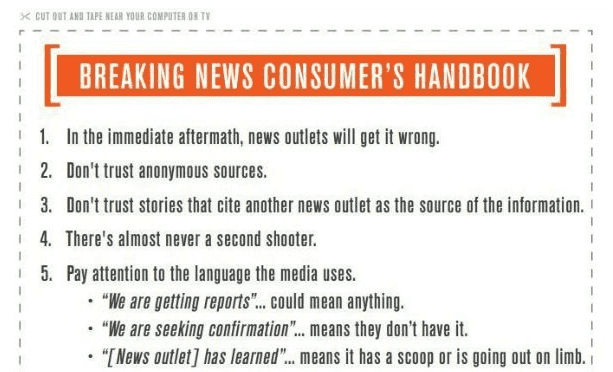Found it interestingly meta that Box 3-2 in the Graber text (page 65), "WikiLeaks: A tool for heroes or villains?", fails spectacularly to get Chelsea Manning's pronouns right. The textbook on journalism can't even manage correct journalistic standards for reporting on transgender people. Sad.
From the
Associated Press, Aug. 26, 2013:
The Associated Press will henceforth use Pvt. Chelsea E. Manning and female pronouns for the soldier formerly known as Bradley Manning, in accordance with her wishes to live as a woman.
Manning announced her wishes last Thursday after being sentenced to 35 years in Fort Leavenworth military prison and a dishonorable discharge from the U.S. Army for revealing U.S. secrets to WikiLeaks, the anti-establishment website.
The use of the first name Chelsea and feminine pronouns in Manning’s case is in conformity with the transgender guidance in the AP Stylebook. The guidance calls for using the pronoun preferred by the individuals who have acquired the physical characteristics of the opposite sex or present themselves in a way that does not correspond with their sex at birth.
Compare to Graber/Dunaway, p. 65:
"U.S. Army Private Bradley Manning—now Chelsea Manning" -- incorrectly uses former name "Bradley" as primary name
"...there are diverging views of the actions of both men [Julian Assange and Chelsea Manning]" -- incorrectly refers to Chelsea Manning as a "man" despite her clear identification as a woman
"Bradley (now Chelsea) Manning's defense of his (her) own actions center on the argument that he (she) released the documents knowing they would embarrass the U.S. government, but he (she) did not think they would cause harm. Some view Manning as a hero and others view him (her) as a traitor." -- incorrectly uses former name "Bradley" and incorrect male pronouns as first references, referring only parenthetically to her correct name and pronouns
"Manning was convicted on 20 of 22 charges and sentenced to 35 years in prison. His convictions included six counts of espionage, but he was not convicted on the most serious charge of aiding the enemy, which could have carried a life sentence. He could be eligible for release in as few as seven years." -- incorrectly refers to Chelsea manning exclusively with male pronouns
You would think that authors who study journalism for a living would have a better grasp on this. Frustrating.
